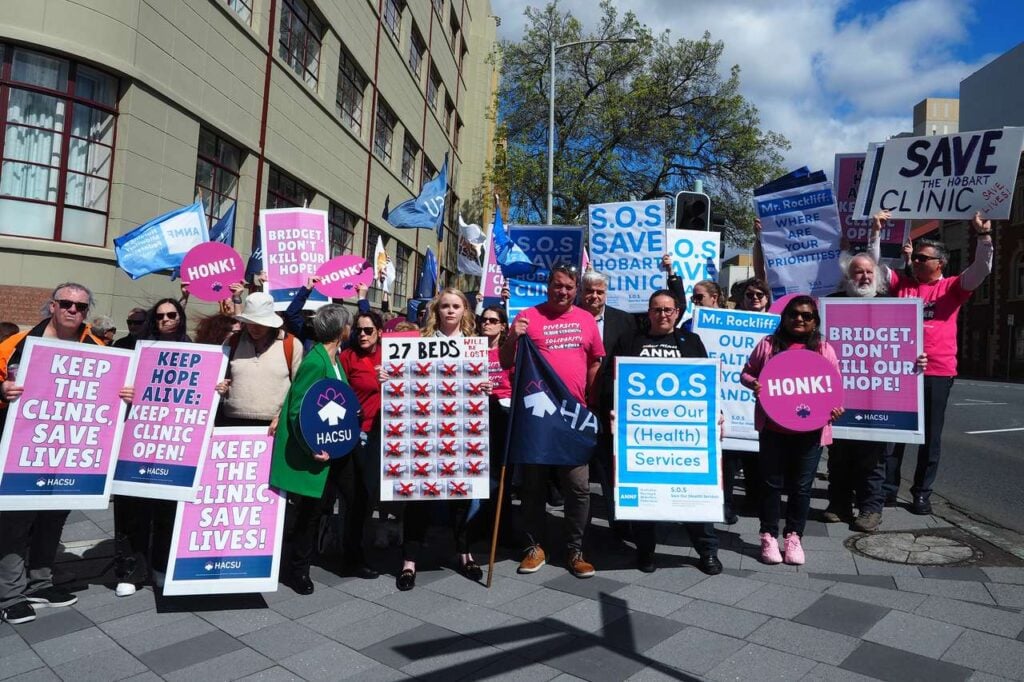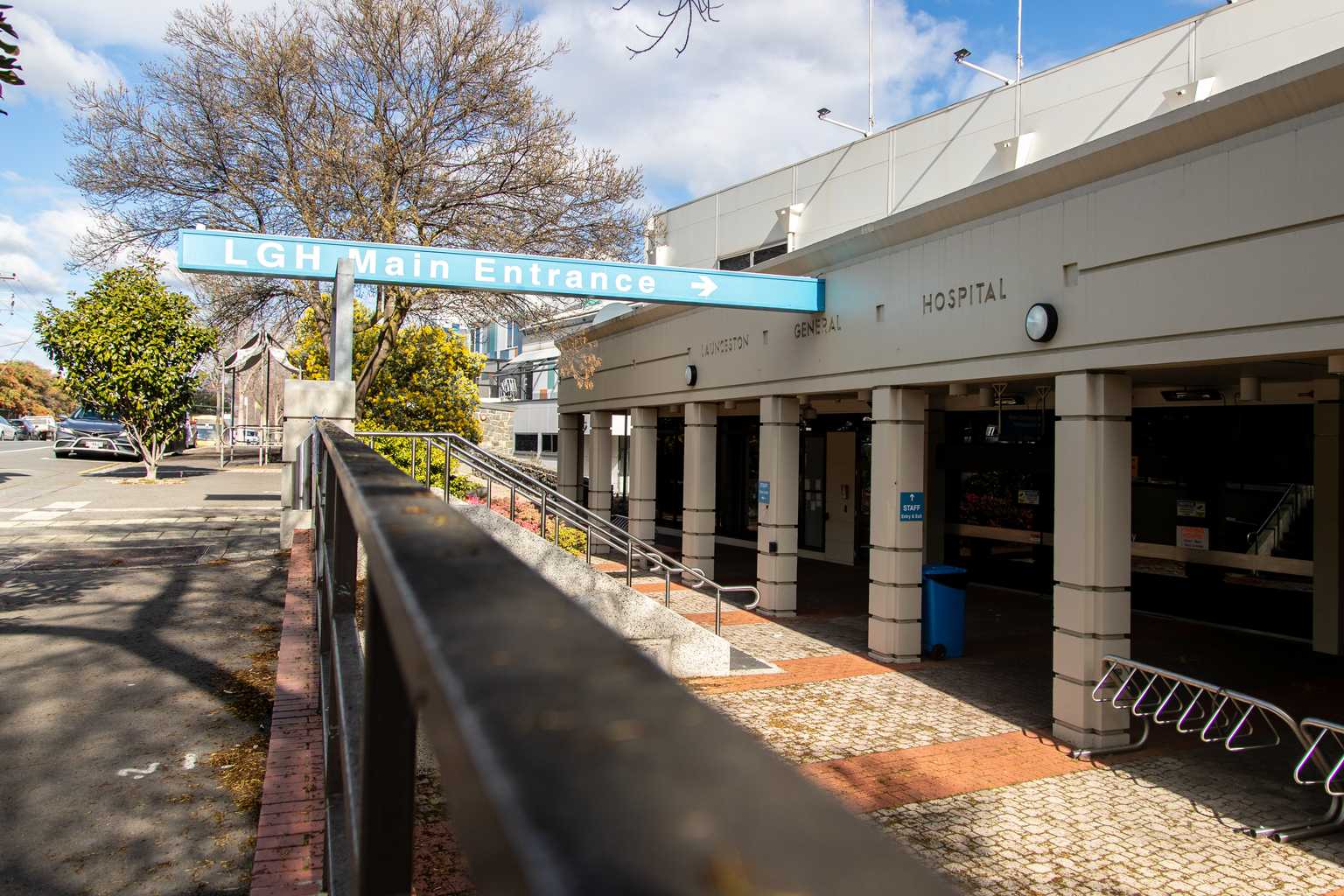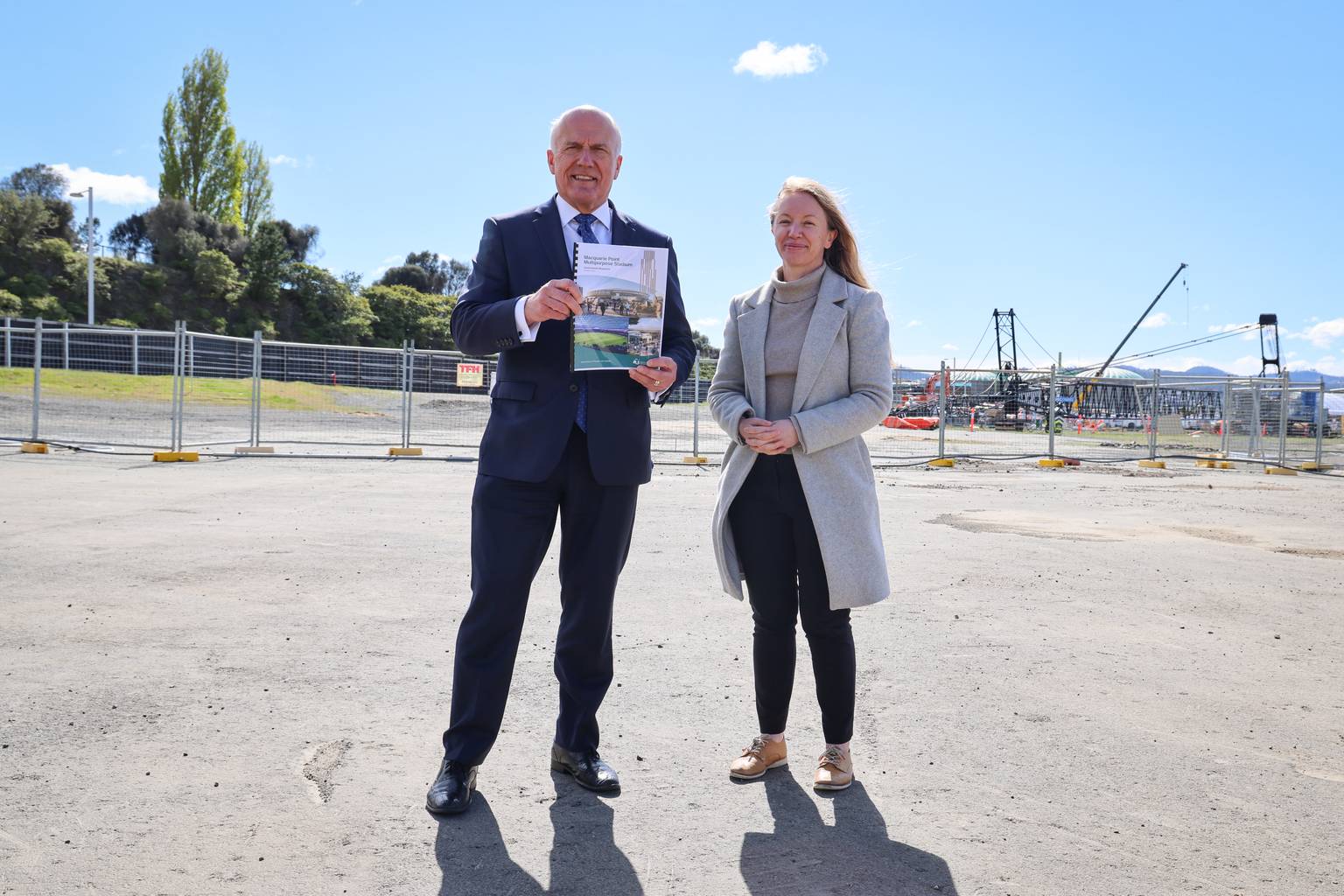Southern Tasmania faces losing all its private mental health beds within weeks, with doctors urging the government to provide emergency funding while a long-term solution is found.
The Australian Medical Association (AMA) Tasmania has called on the state government for “immediate stop-gap funding” to keep The Hobart Clinic’s inpatient facility open for six months while a not-for-profit operator is found to take over.
AMA Tasmania president Dr Michael Lumsden-Steel said the closure would leave the south of the state without private psychiatric beds and put further pressure on already stretched public services.
“If these beds close, patients who cannot be managed in the community will inevitably turn up at the Royal Hobart Hospital emergency department,” he said.
“The public system is already working beyond capacity and it simply cannot absorb this extra demand without compromising what is an already overstretched service.”
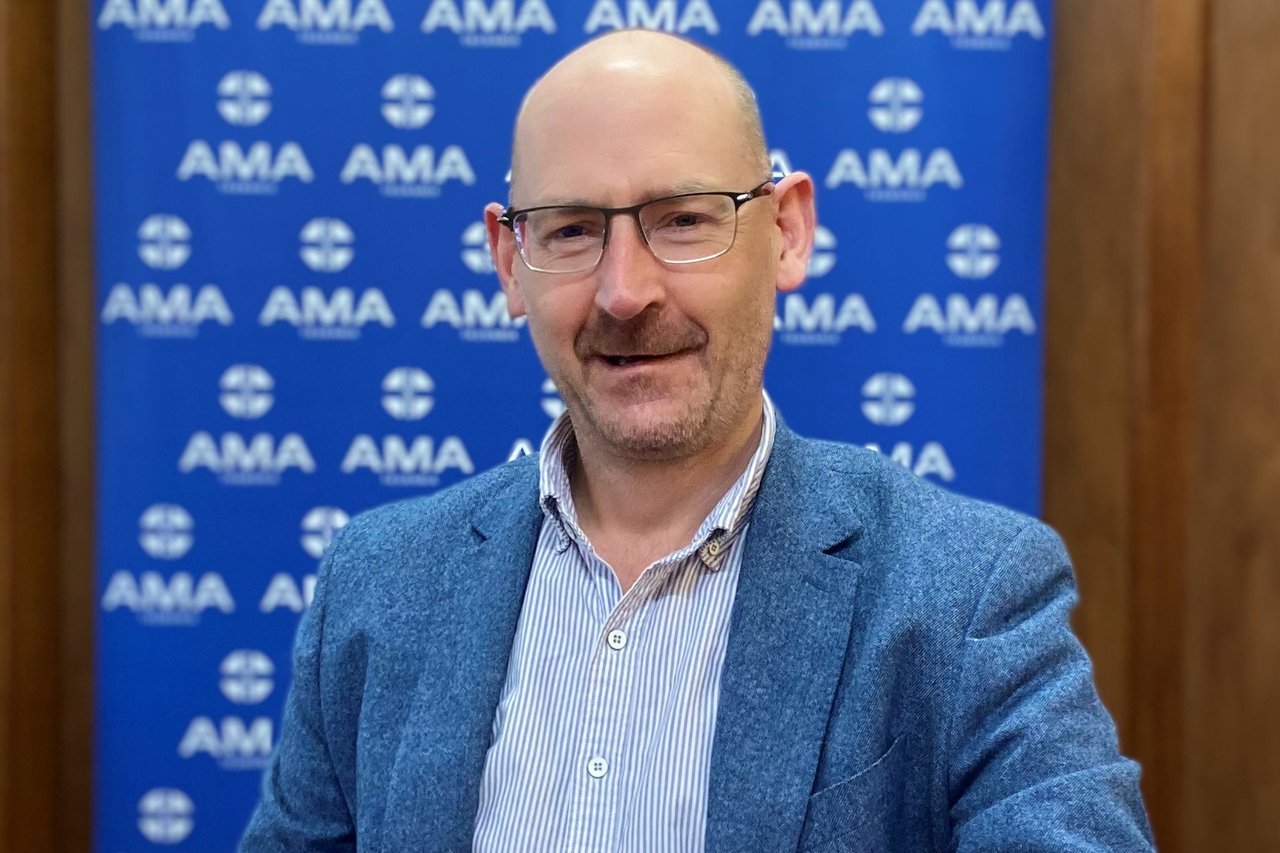
“Doing nothing will cost more in money, in resources and in lives lost.”
Health Minister Bridget Archer said the government had provided significant financial support to the clinic since 2021.
“Unfortunately, despite this and even if the state again stepped in with public funds to prop them up, The Hobart Clinic has not been able to demonstrate any ability to keep their inpatient operations viable,” she said.
Archer said the situation reflected broader challenges facing private health facilities across the country and that discussions were underway with other potential private providers.
It is understood a consortium has requested $2 million to keep the clinic afloat for six months until a longer-term plan is in place.
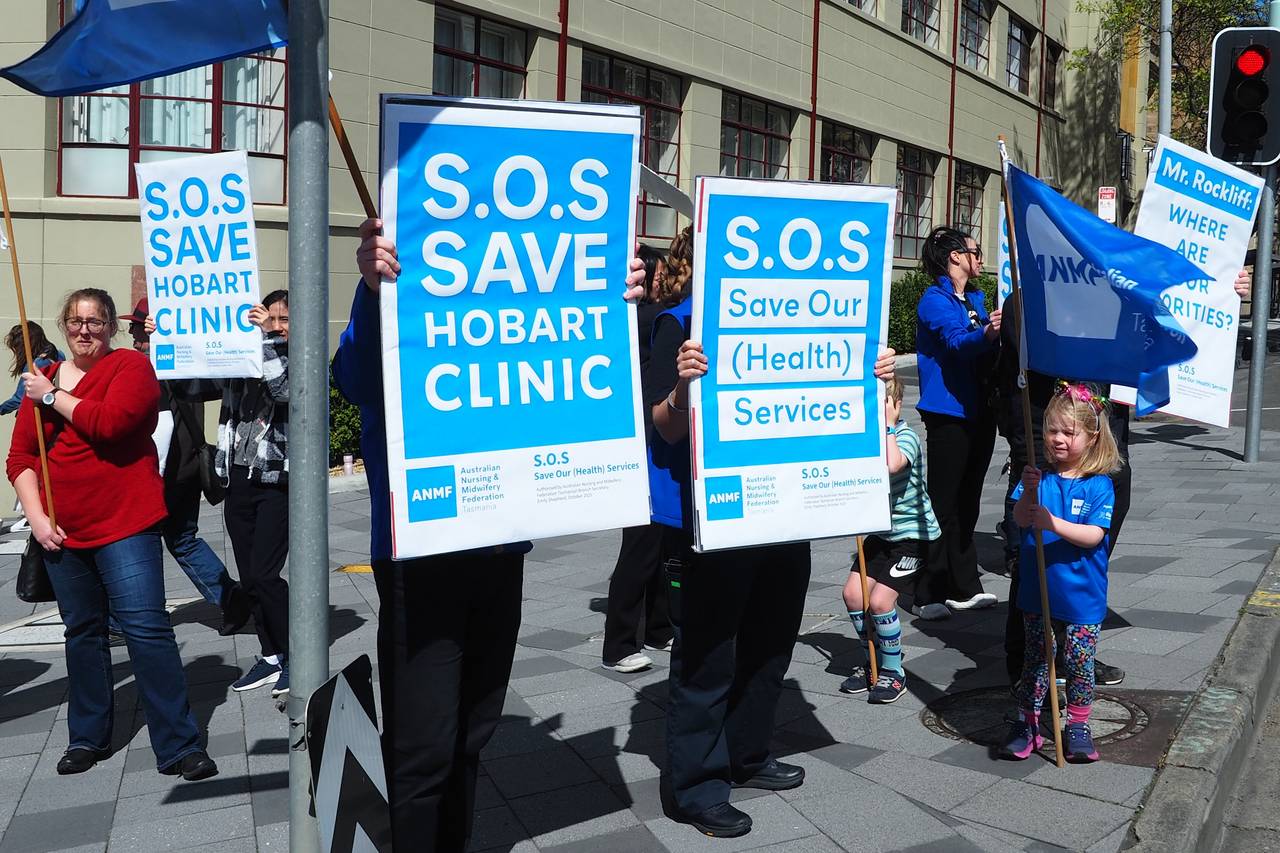
Shadow health minister Sarah Lovell described the minister’s response as “alarming and dangerous”, given repeated warnings from medical professionals about capacity constraints.
“It is the state government’s responsibility to ensure Tasmanians can access mental health care,” she said.
The AMA has put forward several options, including using facilities at St Helen’s Hospital as a temporary measure and developing a sustainable model for a central private psychiatric hospital.
Dr Lumsden-Steel warned the closure also risked driving away specialist staff and called for both state and federal government action.
“The AMA has held crisis meetings with the state’s private psychiatrists to try to find feasible solutions to keep these beds open in the short and long term,” he said.
“We have clearly articulated these solutions to the government outlining our proposal, but we are yet to hear back.”

